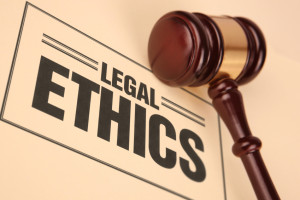Happy Monday!
Friday’s questions are here. The answers follow today’s Honor Roll.
Honor Roll
- Evan Barquist, Montroll Oettinger & Barquist
- Alberto Bernabe, Professor of Law, University of Illinois Chicago Law School
- Beth DeBernardi, Administrative Law Judge, Vermont Dept. of Labor my
- Amy Davis, Davis Legal Solutions
- Andrew Delaney, Martin Delaney & Ricci Law Group
- Benjamin Gould, Paul Frank + Collins
- Bob Grundstein
- Margo Howland, Esq.
- Glenn Jarrett, Jarrett/Hoyt
- Douglas Keehn, Assistant Attorney General, Medicaid Fraud & Residential Abuse Unit
- John Leddy, McNeil Leddy Sheahan
- Patrick Kennedy, Amazon Web Services, The First Brother
- Deborah Kirchwey, Law Offices of Deborah KIrchwey
- Kevin Lumpkin, Sheehey Furlong & Behm
- Jack McCullough, Project Director, Mental Health Law Project, Vermont Legal Aid
- Hal Miller, First American Title, Hawaii State Counsel
- Herb Ogden, Esq.
- Patrick Olmstead, Patrick Olmstead Law
- Christopher Perkett, OP Law
- Keith Roberts, Darby Kolter & Roberts
- Jonathan Teller-Elsberg, Staff Attorney, New Hampshire Legal Assistance
- Jason Warfield, Jason Warfield Family Law & Mediation
- Thomas Wilkinson, Jr., Cozen O’Connor
ANSWERS
Question 1
Exceptions to this duty include:
- to respond to allegations in any proceeding concerning the lawyer’s representation of the client;
- to establish a claim or defense in a controversy between the lawyer and the client; and,
- to resolve and detect conflicts of interests arising from a lawyer’s change or potential change of employment.
What duty? CONFIDENTIALITY – V.R.Pr.C. 1.6
Question 2
Attorney contacted me with an inquiry. I listened, then replied: “the rule requires you to keep it in trust until the dispute is resolved.” Given my response, it’s most likely that:
- A. A client whose advance payment Attorney had yet to earn filed a disciplinary complaint against Attorney.
- B. Attorney was duped by a trust account scam.
- C. Attorney was selected for a trust account audit.
- D. Someone other than Attorney’s client had asserted an interest in funds Attorney is holding for client. See, V.R.Pr.C. 1.15(e). For more, see my blog post: A lawyer’s duties when a third party asserts an interest in funds being held on behalf of a client
Question 3
There’s a rule that sets out the conditions under which a conflict of interest can be waived. One condition is when “each affected client gives informed consent, confirmed in writing.”
Fill-in-the-blanks. Each correct answer is a form of the same word.
A comment to the same rule states:
“Whether REVOKING consent to the client’s own representation precludes the lawyer from continuing to represent other clients depends on the circumstances, including the nature of the conflict, whether the client REVOKED consent because of a material change in circumstances, the reasonable expectations of the other client and whether material detriment to the other clients or lawyer would result.”
Question 4
Lawyer works at Firm. Lawyer and Firm have entered into a written employment agreement that requires Lawyer to pay Firm $1000 for every client that follows Lawyer if Lawyer leaves to work somewhere else. Which is most accurate?
- A. There is no Vermont Rule of Professional Conduct that addresses this issue.
- B. The Vermont Rules of Professional Conduct specifically allow this type of agreement, as long as Lawyer’s payment to Firm does not increase the fee charged to a client who follows Lawyer.
- C. Whether the agreement is enforceable will likely turn on an analysis of the Vermont Rule of Professional Conduct that prohibits lawyers from making agreements that restrict their right to practice law. See, this blog post.
- D. Whether the agreement is enforceable will likely turn on an analysis of the rules that govern conflicts of interest.
Question 5
Competence? Threatening criminal prosecution?
In a fictional work published in 1600, Portia was not a lawyer. However, during a trial central to the plot, she pretended to be both a man and a lawyer. She “represented” Antonio in a contractual dispute with Shylock. Shylock had loaned money to Antonio. When Antonio did not repay the money, Shylock sought the remedy specified in the contract.
Portia asked Shylock to accept recompense other than as stated in the contract – first suggesting that he show mercy to Antonio, next offering to pay Shylock 3 times what Antonio owed. Still, Shylock refused, insisting that he receive the contractual remedy.
In the end, Portia prevailed, pointing out that the while the contract provided a specific remedy, it did not give Shylock the right to take even a drop of Antonio’s blood. Indeed, the evidence suggests that Portia threatened Shylock with criminal prosecution in order to gain an advantage in the civil matter.
What’s the well-known phrase that, per the contract, was Shylock’s remedy for Antonio’s failure to repay the loan? POUND OF FLESH
Bonus: what’s the title of the fictional work? THE MERCHANT OF VENICE





